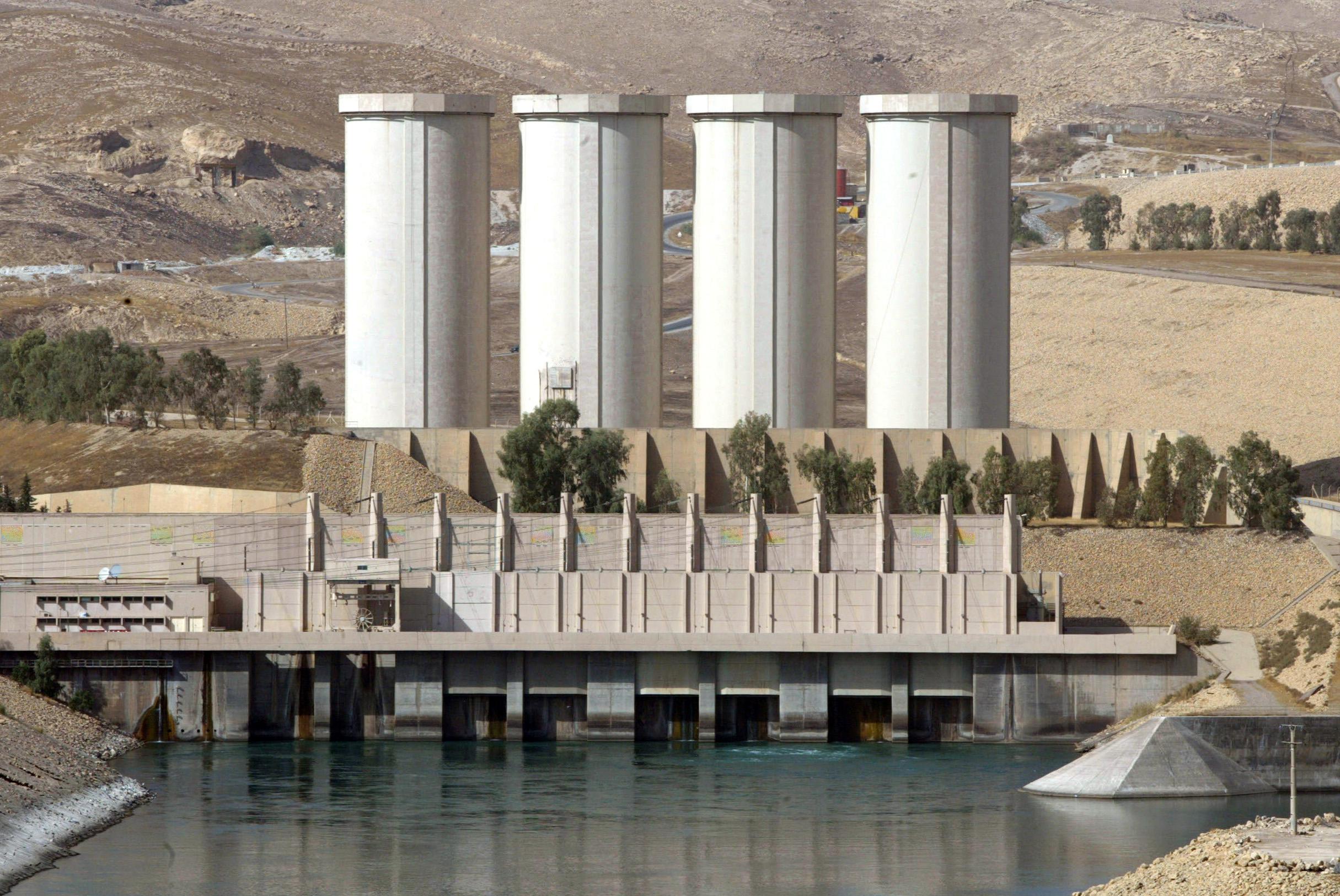Kurdish forces managed to make some gains in their battle with ISIS fighters over the Mosul Dam on Sunday, capturing part of the strategic facility, according to Iraq officials. Kurdish forces were able to make quick progress in the fight in part thanks to Iraqi and U.S. airstrikes that bombed ISIS targets near the country’s largest dam, which militants took over two weeks ago. A Kurdish commander tells the Associated Press that his forces control the eastern part of the dam. Recapturing the dam is seen as critical, not just because it provides electricity and water for irrigation in the region, but also due to fears that the dam could be used as a weapon, considering that a breach “would unleash catastrophic flooding,” notes the Washington Post.
On Aug. 16, the U.S. military first launched the airstrikes that paved the way for the battle over the dam by destroying armored vehicles used by ISIS. “The strikes represent an important broadening of the American military operations in Iraq approved last week by President Barack Obama that indicate how the administration may push the limits of the scope of authorized operations,” points out the Wall Street Journal. Meanwhile, U.S. intelligence officials are looking on nervously at the Haditha Dam, the country’s second-largest facility where Iraqi troops have been pushing back an ISIS assault for weeks, reports CNN.
Writing in the Telegraph, British Prime Minister David Cameron says the U.K. must use its “military prowess” to prevent “a terrorist state on the shores of the Mediterranean.” Cameron said Britain needs to get tough on ISIS in order to prevent the al-Qaida offshot from gaining enough power to eventually launch an attack on British soil. “If we do not act to stem the onslaught of this exceptionally dangerous terrorist movement, it will only grow stronger until it can target us on the streets of Britain,” Cameron writes.
